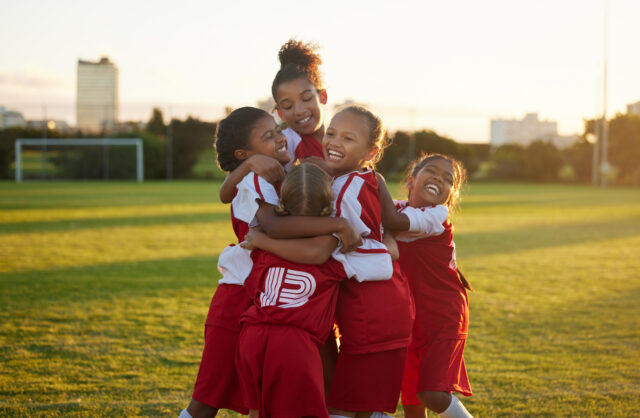
Incorporating sports into the lives of children and adolescents has profound social and psychological benefits. Sports are not just physical activities; they are crucial in developing life skills, fostering social interaction, and enhancing mental health. Athletic directors play a pivotal role in understanding and promoting these benefits to support the holistic development of young athletes.
Enhancing Prosocial Behavior
Prosocial behavior, which includes helping, sharing, and comforting others, is essential for healthy social development. Studies show that participation in sports significantly enhances prosocial behavior in children and adolescents. Team sports particularly encourage cooperation, empathy, and effective communication among participants. These behaviors are not only vital on the field but also translate into everyday social interactions, promoting harmony and positive relationships.
Boosting Cognitive Abilities and Academic Performance
Physical activity increases blood flow to the brain, which enhances cognitive functions such as memory, concentration, and problem-solving skills. A study by the University of Kansas revealed that more than 97% of student-athletes graduated high school, a rate 10% higher than their non-athlete peers. Additionally, athletes generally have better GPA outcomes, indicating a direct correlation between sports participation and academic performance.
Emotional Development and Mental Health
Engagement in sports provides a unique state of relaxation and mental clarity. The Canadian Fitness and Lifestyle Research Institute found that exercise promotes concentration, creativity, and effective problem-solving. Furthermore, the endorphins released during physical activity improve mood and reduce symptoms of depression and anxiety. Regular participation in sports helps athletes develop resilience, manage stress, and maintain a positive outlook on life.
Developing Soft Skills
Sports foster essential soft skills that are crucial for personal and professional success. These include:
- Communication Skills: Team sports require constant verbal and non-verbal communication. Athletes learn to express their thoughts, listen actively, and pick up on cues from teammates and coaches, enhancing their overall communication abilities.
- Decisive Action: Sports teach athletes to make quick, effective decisions under pressure. This ability to think on their feet is valuable both on and off the field, helping them handle stressful situations with confidence.
- Teamwork: Collaboration is at the heart of team sports. Athletes learn to work towards common goals, appreciate diverse talents, and develop a sense of responsibility towards their teammates. This builds a strong foundation for working in any team-based environment in the future.
- Time Management: Balancing sports and academics requires excellent time management skills. Athletes learn to prioritize tasks, set goals, and efficiently manage their time to meet various commitments. These skills are invaluable in both their academic and future professional lives.
Building Self-Esteem and a Sense of Community
Participation in sports fosters the development of competence, confidence, connections, character, and caring—collectively known as the five C’s. These elements contribute to a strong sense of self-esteem. Athletes benefit from the social support and sense of belonging provided by their teams, coaches, and families. This community support is crucial in nurturing self-esteem and creating a positive self-image.
Benefits for Children with Special Educational Needs
Sports activities significantly benefit children and adolescents with special educational needs. Research indicates that long-term physical exercise improves cognitive function and social behaviors in children with ADHD and autism. Sports provide a supportive environment for these children, helping them develop essential life skills, improve social interactions, and enhance their overall well-being.
Athletic directors have a crucial role in recognizing and promoting the multifaceted benefits of sports for young athletes. By encouraging participation in sports, they can help foster prosocial behavior, enhance cognitive and academic performance, support emotional development, and build essential life skills. Understanding these benefits allows athletic directors to create inclusive, supportive environments where all students can thrive, both on and off the field. The impact of sports extends far beyond physical health, contributing significantly to the social and psychological well-being of children and adolescents.



